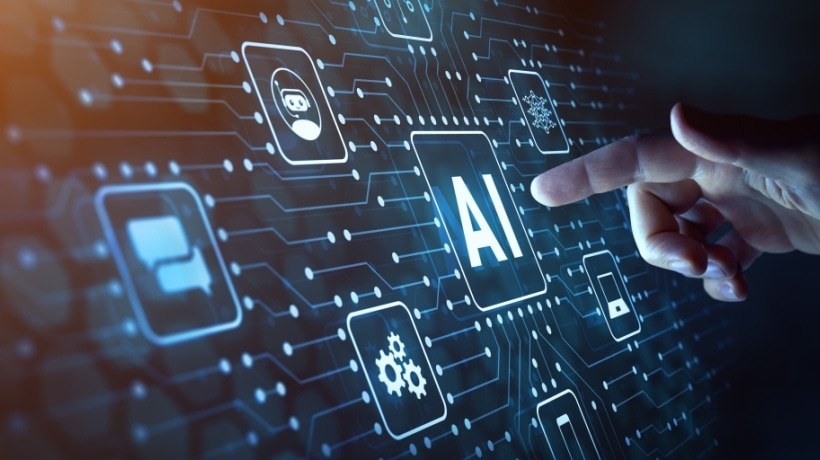What Is Adaptive Learning and How Does It Work? <h2>
Adaptive learning is a teaching method that personalizes lessons, activities, and assessments based on the unique needs of each learner, tailoring content dynamically in real time. By leveraging technology, adaptive learning evaluates a learner’s mastery of concepts and adjusts the learning path accordingly. This approach ensures that learners receive customized content, providing targeted recommendations to either review challenging topics or advance to more complex ones.
For instance, in a classroom with 100 learners, each individual may face different challenges or excel in different areas. Adaptive learning software identifies these gaps and provides personalized recommendations and activities to help them progress. The system adapts in real time, allowing learners to follow non-linear learning paths, making the learning experience more engaging and effective.
Adaptive learning platforms rely on artificial intelligence (AI) and machine learning to continuously analyze data from assessments and engagement. This data-driven approach helps to improve learning outcomes and equity, especially for underrepresented learners. When thoughtfully implemented, adaptive learning gives educators valuable insights into learner progress while empowering individuals to take control of their own learning journeys.
The Benefits of Adaptive Learning <h2>
Adaptive learning offers numerous advantages that enhance the learning experience:
- Tailored Learning Paths: By providing real-time insights into learners’ progress, adaptive learning systems tailor lessons to individual needs. This allows learners to move at their own pace, increasing motivation and engagement.
- Improved Learning Outcomes: Adaptive learning helps learners focus on specific areas of need, improving their overall mastery of the material. This personalized approach ensures that learners stay motivated and achieve better results.
- Cost-Effective: By offering digital course materials aligned with learning objectives, adaptive learning can serve as a more affordable alternative to traditional textbooks.
- Cohesive Learning Environment: Adaptive learning platforms ensure that lessons, activities, and assessments remain aligned, helping both learners and educators maintain a clear understanding of learning goals.
- Equity and Support: Adaptive learning provides timely, relevant data on performance, enabling educators to identify and address challenges faced by individual learners or subpopulations, particularly those from marginalized groups.
Examples of Adaptive Learning in Practice <h2>
Adaptive learning systems employ various methods to enhance learner engagement:
- Adaptive Assessments: Diagnostic and formative assessments identify learners’ knowledge gaps and skills. These assessments continuously evaluate progress, ensuring learners receive the necessary feedback to advance.
- Simulations and Serious Games: Interactive simulations and games allow learners to practice skills in real-world scenarios, improving retention and engagement through hands-on experiences.
- Scenario-Based Learning: Learners navigate branching scenarios that adapt based on their choices, offering personalized pathways and helping them develop critical thinking and problem-solving skills.
- Adaptive Content Delivery: Learning materials are broken down into smaller chunks and delivered according to learners’ progress, ensuring they receive content at the right level and pace.
- Real-Time Feedback and Remediation: Immediate feedback helps learners correct mistakes, while targeted remediation is provided for those struggling with particular concepts.
Adaptive Learning in Education and the Corporate World <h2>
Adaptive learning is highly effective across educational and corporate settings, providing personalized experiences that improve outcomes.
Adaptive Learning in Education: In K-12 schools and universities, adaptive learning supports individualized instruction, allowing learners to progress at their own pace. By addressing the needs of each learner, adaptive systems promote differentiated learning experiences that enhance engagement and performance.
Adaptive Learning in Corporate Training: In the corporate world, adaptive learning is invaluable for employee development. Organizations can create customized training paths that focus on skills gaps, helping employees upskill or reskill efficiently. Adaptive learning platforms provide data-driven insights into employee progress, enabling employers to refine training programs and ensure continuous improvement.
Adaptive Learning vs. Personalized Learning <h2>
While adaptive and personalized learning are often used interchangeably, there is a key difference:
- Adaptive Learning: Adjusts dynamically based on real-time data. The system continuously adapts to each learner’s needs, delivering content that addresses knowledge gaps or provides advanced material.
- Personalized Learning: Learners have more control over their learning paths, selecting topics and schedules based on their preferences. While content is tailored to the learner, it typically remains static across different individuals.
Corporate Training Benefits: Why Adaptive Learning Stands Out <h2>
Adaptive learning offers several advantages for corporate training:
- Time Efficiency: Learners can skip content they already understand, focusing on areas that require improvement. This approach boosts productivity and keeps learners engaged.
- Personalization: Adaptive learning creates personalized paths tailored to each employee’s needs, enhancing engagement and retention.
- Scalability: Adaptive platforms can be scaled across organizations, ensuring that all employees receive personalized training that meets their needs.
- Upskilling and Reskilling: By identifying skills gaps, adaptive learning supports employees in acquiring new skills relevant to their roles and the organization’s goals.
- Data-Driven Insights: Adaptive learning platforms provide valuable data, enabling employers to track employee progress and measure the effectiveness of training programs.
Start Your Journey with Curiously to create engaging, personalized learning experiences that empower your learners and enhance outcomes. Whether you’re focusing on adaptive learning or personalized paths, Curiously offers the best customized knowledge-based AI chatbot you need to succeed.
